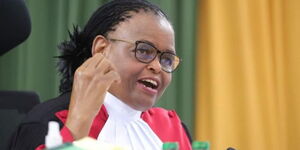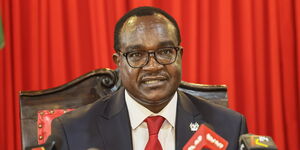The Teachers' Service Commission's (TSC) Acting Chief Executive Officer, Evaleen Mitei, has pledged to make changes to the payment of hardship allowances to teachers.
Appearing before the National Assembly's Education Committee on Thursday, June 19, Mitei was put to task to explain why teachers in marginalised areas receive lower hardship allowances compared to those in more stable working environments, such as Nairobi.
During the session, MPs also questioned the criteria used to define hardship areas, as well as the role of the Salaries and Remuneration Commission (SRC) in determining the allowances.
Siaya County Woman Representative Christine Ombaka called for the Commission to clearly define what constitutes a hardship area, pointing to the irony that Nairobi’s hardship allowance sometimes surpasses that of rural areas lacking basic amenities.
"The definition of hardship areas needs to be considered," she stated, emphasising that teachers in remote areas work under difficult circumstances and require better hardship allowances.
In her response to the committee, Mitei clarified the Commission's role, stating that it was the SRC, jointly with the National Treasury, that was responsible for determining the said allowances.
"When we engage in collective bargaining, we present our recommendations to the SRC and Treasury. They were the ones who came up with the classification. Once TSC receives that advisory, it is binding," Mitei noted.
She went on to acknowledge the disparities in hardship allowances among teachers, stating, "We will take up the issue of hardship allowances and municipality allowances with the Public Service Commission."
Mitei was also put to task to explain the disparities in the distribution of teachers across schools in the country, for instance, cases where some schools have more teachers than others.
"We have schools that have excess teachers and schools with not enough teachers, so that we can balance, and wherever there is need, Parliament can budget for recruitment," Teso MP Mary Emaase questioned.
Emaase's sentiments were echoed by MP Eve Obara, who noted that some schools were lagging due to inadequate staffing, despite other institutions receiving more than enough teachers.
Another pressing concern raised by Committee members was the criteria used by the Commission in the recruitment of teachers.
In response, the Acting TSC boss stated that the Commission operates as an equal opportunity employer, guided by the Constitution and relevant Acts.












